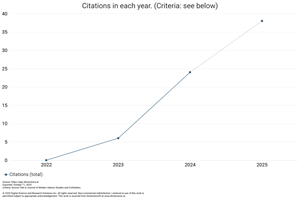Religious and Community Leaders' Perspectives on Minor Marriage Resulting From Unwed Pregnancy
DOI:
https://doi.org/10.59653/jmisc.v2i01.573Keywords:
marriage, underage marriage, Knowledge, Islamic LawAbstract
Instances of unwed pregnancy leading to teenage marriage are common throughout different areas. Recently, adultery has become more common in Indonesian society, particularly in the community of Kota Bambu Utara subdistrict. Teenagers in North Bambu City Village nowadays are therefore frequently involved in the problem of promiscuity, which leads to adultery, and as a result, many of them become unwed mothers who later get married while still pregnant. The purpose of this study is to find out what the religious and community leaders in Kota Bambu Utara Village, Palmerah District, think about underage marriage as a result of unwed pregnancies. This kind of research is qualitative in character and falls under the case study category. The key sources of data for this study were informants who provided primary sources. The primary sources of information for this study were religious and community leaders in Kota Bambu Utara Subdistrict. Researchers used documentation, interviews, and observation to gather data for their study. The study's findings indicate that, despite the marriage law's regulation of the legal age restriction for those seeking marriage, underage weddings resulting from unwed pregnancies typically happen between the ages of 15 and 17. A minor who does not meet the conditions for marriage must request a dispensation from the West Jakarta Religious Court in order for their marriage to proceed. A number of circumstances, such as the individual's behavior, influences from parents and family, a lack of education and religious understanding, and social elements in the area, can lead to underage marriage owing to unwed pregnancy.
Downloads
References
Adhim MF. Indahnya Pernikahan Dini. Jakarta: Gema Insansi Press. 2003.
Ahmadi, A dan Sholeh, M. Psikologi Perkembangan. Jakarta: PT. Rineka Cipta. 1991.
Al-Ghifar I A. Badai Rumah Tangga. Bandung: Mujahid Press. 2003.
Ali, Zainudin. Hukum Perdata Islam di Indonesia. Jakarta: Sinar Grafika. 2007.
Arikunto S, Prosedur Penelitian: Suatu Pendekatan Praktik. Jakarta: Rineka Cipta, 2011.
Azam AAM. Fiqh Munakahat. Cetakan Ke-1. Jakarta: Amzah. 2009.
Basrosi, Suwandi. Memahami Penelitian Kualitatif. Jakarta: Rineka Cipta. 2006.
Basyir, AA. Hukum Perkawinan Islam. Yogyakarta: UI Press. 2000.
Mannan, A. Aneka Masalah Hukum Perdata Islam di Indonesia. Jakarta: Kencana. 2006.
Mintarja E. Menikahlah denganku Atas Nama Cinta dan Ilahi. Jakarta: Qultum Media. 2005
Muhdlor Z. Memahami Hukum Perkawinan. Bandung: Al-Bayani. 1995.
Ramulyo MI. Hukum Perkawinan Islam. Jakarta: Bumi Aksara. 1996.
Rasyid S. Fiqih Islam. Bandung: Sinar Baru Algensindo. 2008.
Rasyid S. Fiqih Islam. Jakarta: Attahiriyah. 1993.
Sandjaja, Heriyanto A. Panduan Penelitian. Jakarta: Prestasi Pustakaraya. 2006.
Sarwono SW. Psikologi Remaja. Jakarta: PT Raja Grafindo Persad. 2005.
Shihab MQ. Perempuan. Cetakan Ke-1. Tangerang: Lentera Hati. 2005.
Downloads
Published
How to Cite
Issue
Section
License
Copyright (c) 2023 Usman Alfarisi, Fajar Riswandi, Abidah Dzakira, Amanda Selvita, Ahmad Farhan Zulfikar, Okta Rosfiani

This work is licensed under a Creative Commons Attribution-ShareAlike 4.0 International License.
Authors who publish with this journal agree to the following terms:
- Authors retain copyright and grant the journal right of first publication with the work simultaneously licensed under a Creative Commons Attribution-ShareAlike that allows others to share the work with an acknowledgement of the work's authorship and initial publication in this journal.
- Authors are able to enter into separate, additional contractual arrangements for the non-exclusive distribution of the journal's published version of the work (e.g., post it to an institutional repository or publish it in a book), with an acknowledgement of its initial publication in this journal.
- Authors are permitted and encouraged to post their work online (e.g., in institutional repositories or on their website) prior to and during the submission process, as it can lead to productive exchanges, as well as earlier and greater citation of published work (See The Effect of Open Access).
























